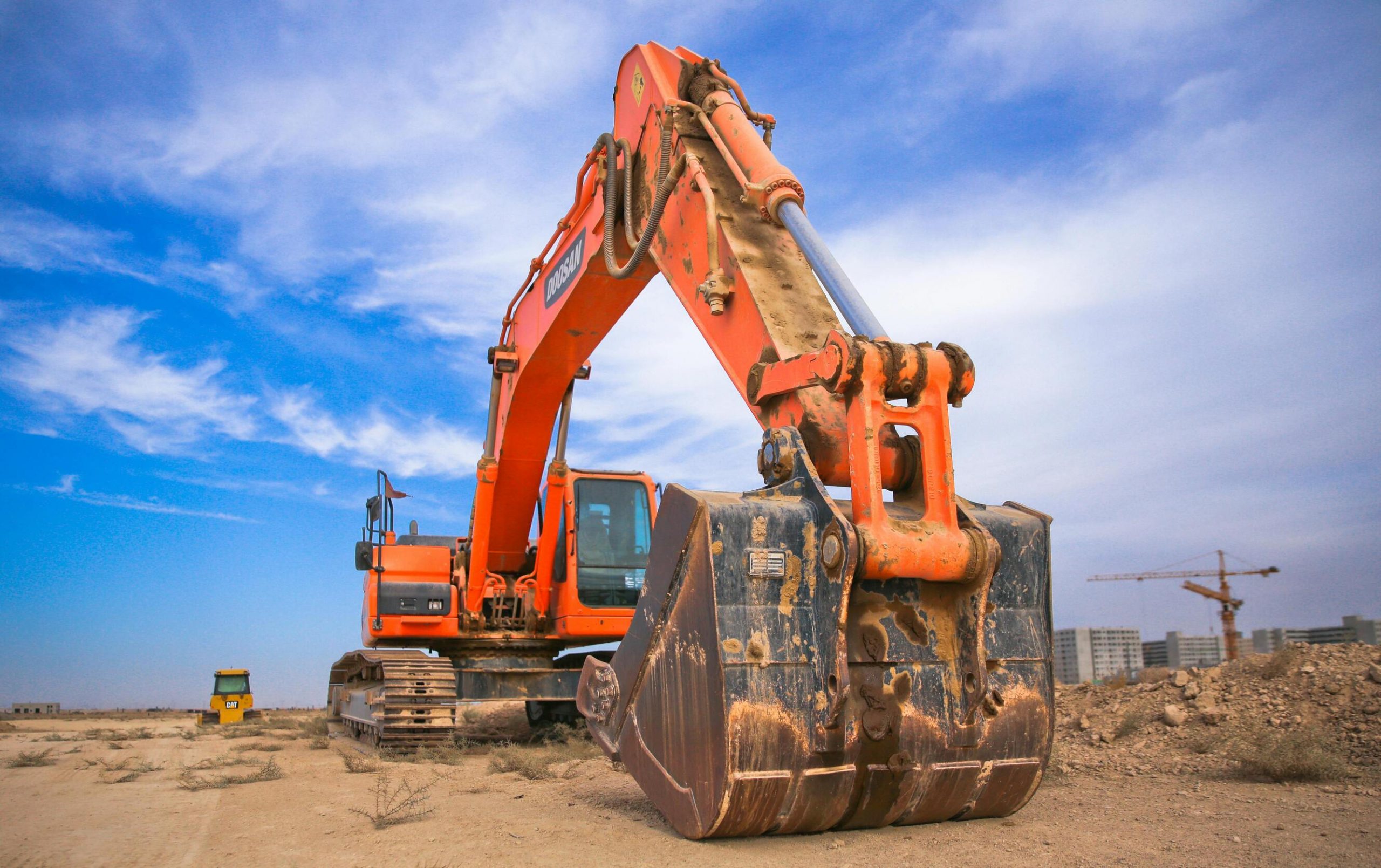Hydrogen-powered excavators are significantly impacting the construction industry through their environmentally sustainable and cost-effective operations. This article delves into the nature of hydrogen-powered excavators, highlighting the benefits of utilizing hydrogen as a fuel source, the obstacles and constraints faced by such machines, the technology underpinning their functionality, their diverse applications across industries, and the anticipated advancements in this field. It offers insight into how these pioneering machines are reshaping the trajectory of the construction sector.

Overview of Hydrogen Powered Excavators
Hydrogen-powered excavators symbolize a pioneering advancement in construction machinery, epitomizing the harmonious marriage of sustainable technology and renewable energy sources. These heavy-duty equipment function with zero emissions, thereby significantly mitigating the environmental impact conventionally associated with traditional excavators.
Through the utilization of fuel cell technology, hydrogen excavators present a sustainable substitute for excavation endeavors, heralding the advent of a cleaner and more efficient era within the construction realm. The incorporation of clean energy reservoirs not only alleviates the carbon footprint but also amplifies energy efficacy, positioning these excavators as pivotal components in fostering environmentally conscious practices within the industry. This transition towards hydrogen-powered machinery signifies a proactive stride in addressing environmental apprehensions while upholding elevated performance benchmarks in construction undertakings.
What are Hydrogen Powered Excavators?
Hydrogen-powered excavators represent a leading-edge advancement in the construction sector, utilizing fuel cells to drive heavy machinery. These excavators embody the industry’s dedication to sustainability objectives by presenting an environmentally friendly alternative fuel source.
Considering the escalating emphasis on diminishing carbon footprints and mitigating environmental repercussions, hydrogen-powered excavators present a promising solution for construction firms seeking to adopt sustainable practices. By leveraging fuel cells, these excavators not only diminish greenhouse gas emissions but also function with reduced noise levels compared to conventional diesel-powered equipment, thereby contributing to a quieter and cleaner work environment. The incorporation of pioneering technology in these excavators not only bolsters operational efficiency but also resonates with the sector’s pursuit of attaining enduring sustainability goals.
Advantages of Using Hydrogen as Fuel
The utilization of hydrogen as a fuel in excavators presents numerous advantages, serving as an alternative fuel source that substantially enhances energy efficiency and results in significant reductions in emissions.
Hydrogen, renowned for its clean-burning characteristics, has seen increased acceptance as a sustainable option across various industries. When incorporated into excavators, it not only aids in diminishing harmful emissions but also markedly enhances the overall operational efficiency of the machinery. By leveraging the potential of hydrogen, excavators can function with reduced environmental impact in comparison to conventional fossil fuels. This transition towards cleaner energy sources is in line with global initiatives to address climate change and advocate for sustainable practices within the construction and engineering sectors.
Emissions Reduction and Cost Savings
The utilization of hydrogen-powered excavators offers a notable advantage in terms of reducing carbon footprint and emissions, thereby contributing to environmental sustainability. These excavators demonstrate exceptional fuel efficiency, resulting in substantial cost savings and the preservation of energy resources.
Hydrogen-powered excavators represent an innovative solution for construction projects aiming to minimize their environmental impact. By harnessing hydrogen as a clean energy source, these excavators not only diminish harmful emissions but also aid in meeting strict emission standards established by regulatory authorities. The incorporation of fuel cells in these machines enhances fuel efficiency, leading to reduced operational expenses and heightened energy conservation over time. This transition towards cleaner and more sustainable construction practices signifies a significant stride towards a more environmentally conscious future.
Challenges and Limitations
Despite the numerous advantages of hydrogen-powered excavators, they encounter challenges and limitations, especially concerning compliance with stringent emission regulations and the effectiveness of emission control. Addressing these obstacles is imperative for the advancement of sustainable solutions within the excavating industry.
A primary challenge associated with hydrogen-powered excavators lies in ensuring that their emissions align with the rigorous regulations established by environmental authorities. Managing emissions from machinery powered by hydrogen presents a substantial technological hurdle due to the unique characteristics of hydrogen fuel cells.
It is paramount to discover methods to enhance the efficiency of emission control systems while preserving the excavators’ performance to facilitate the widespread integration of eco-friendly equipment in the construction sector. By surmounting these barriers, the construction industry can make significant advancements toward a greener and more sustainable future.
Current Limitations and Potential Solutions
The present limitations of hydrogen-powered excavators are primarily centered on the necessity for further advancements in technology to enhance efficiency and infrastructure development to facilitate widespread adoption. Overcoming these challenges is critical for optimizing the excavators’ potential in contributing to efforts aimed at mitigating climate change.
Key elements in enhancing the performance of hydrogen excavators include improved technologies such as advanced fuel cell systems and more efficient energy storage solutions. The establishment of an extensive hydrogen refueling infrastructure network is essential to ensure the smooth operation of these excavators on a larger scale. By addressing these crucial aspects, hydrogen excavators can play a significant role in reducing greenhouse gas emissions and promoting sustainable infrastructure practices.
Technology Behind Hydrogen Powered Excavators
The technology powering hydrogen-fueled excavators is centered around advanced fuel cell technology that drives sophisticated machinery with exceptional efficiency. This ground breaking innovation represents a significant stride in the energy transition towards sustainable practices within the construction industry.
Through the utilization of fuel cell technology, hydrogen excavators present a clean and efficient alternative to conventional diesel-powered equipment. These excavators not only mitigate carbon emissions but also showcase the feasibility of integrating renewable energy sources into heavy-duty machinery.
With continuous enhancements in machinery design and performance, hydrogen excavators are reshaping the construction equipment sector, leading the way toward a more sustainable future. Their silent operation and emission-free output position them as a pivotal contributor in propelling the industry towards environmentally conscious practices.
How Do They Work?
Hydrogen-powered excavators function by utilizing electrically powered systems propelled by hydrogen fuel cells, rendering them well-suited for a variety of infrastructure projects. These excavators contribute to the advancement of electricity generation through sustainable means.
This cutting-edge technology enables the excavators to produce electricity by combining hydrogen stored in the fuel cells with oxygen from the atmosphere, generating clean energy to operate their electric systems. By converting chemical energy into electrical power, these machines mitigate greenhouse gas emissions and reduce dependence on conventional fossil fuels, aligning with international initiatives aimed at transitioning to cleaner energy sources.
Across diverse infrastructure projects, such as construction sites and mining operations, hydrogen-powered excavators demonstrate their efficacy, adaptability, and environmentally conscious operational framework.
Applications of Hydrogen Powered Excavators
Hydrogen-powered excavators are extensively utilized in various applications within construction sites, offering emission-free operations fueled by renewable sources. These excavators play a pivotal role in advocating for sustainable practices within the construction industry.
By leveraging the capabilities of hydrogen fuel cells, these excavators are leading the charge toward a cleaner and more environmentally conscious construction sector. Their capacity to function without generating harmful emissions not only protects the environment but also enhances air quality on construction sites. The incorporation of renewable energy sources in their operation signifies a transition towards more sustainable construction methodologies, aligning with the increasing global emphasis on diminishing carbon footprints and embracing eco-friendly technologies. Ultimately, hydrogen-powered excavators are transforming construction operations by amalgamating efficiency with environmental awareness.
Potential Uses in Different Industries
 Hydrogen-powered excavators present potential applications that extend beyond construction, reaching into various industries that heavily rely on industrial equipment. Their integration is in alignment with sustainable energy production practices and supports eco-friendly construction methods.
Hydrogen-powered excavators present potential applications that extend beyond construction, reaching into various industries that heavily rely on industrial equipment. Their integration is in alignment with sustainable energy production practices and supports eco-friendly construction methods.
These innovative excavators hold substantial promise in transforming the operations of heavy machinery in sectors like mining, agriculture, and infrastructure development. Through the utilization of hydrogen fuel cells, these machines not only mitigate carbon emissions but also improve operational effectiveness. The adaptability of hydrogen-powered excavators renders them suitable for tasks where conventional diesel-powered machinery may be inadequate, thus promoting cleaner and more sustainable practices within industrial environments. Their adoption sets the stage for advancements in energy production and propels the broader transition toward environmentally conscious operations.
Future of Hydrogen Powered Excavators
The potential of hydrogen-powered excavators in sustainable development lies in their ability to significantly reduce greenhouse gas emissions and facilitate the establishment of sustainable infrastructure. These advancements signify a substantial departure towards more environmentally friendly construction practices.
By embracing hydrogen as a clean energy source, excavators are positioned to play a crucial role in transitioning traditional construction techniques to eco-friendly processes. The incorporation of hydrogen technology not only reduces the environmental impact of construction operations but also establishes a new benchmark for sustainability in the sector.
The adoption of hydrogen-powered excavators is pivotal in showcasing the viability and effectiveness of alternative energy solutions for heavy machinery, thereby leading the path towards a more environmentally aware approach to infrastructure development.
Expected Developments and Impact on the Construction Industry
The anticipated advancements in hydrogen-powered excavators are positioned to bring about a transformation in the construction industry. The progress in fuel cell systems holds the potential for economic advantages and widespread adoption of clean technology in excavation operations.
These developments in fuel cell systems are expected to not only improve the efficiency and performance of excavators but also result in significant reductions in operational expenses. By utilizing clean technology, construction firms can not only adhere to rigorous environmental standards but also cater to the increasing market demand for sustainable practices.
The incorporation of hydrogen-powered excavators in construction endeavors will promote a more environmentally conscious and eco-friendly approach, providing a competitive advantage to companies that embrace these technologies. As the construction sector moves towards sustainable equipment, there will be a discernible transformation in the landscape of excavation practices, with a greater emphasis on eco-friendly solutions.…
